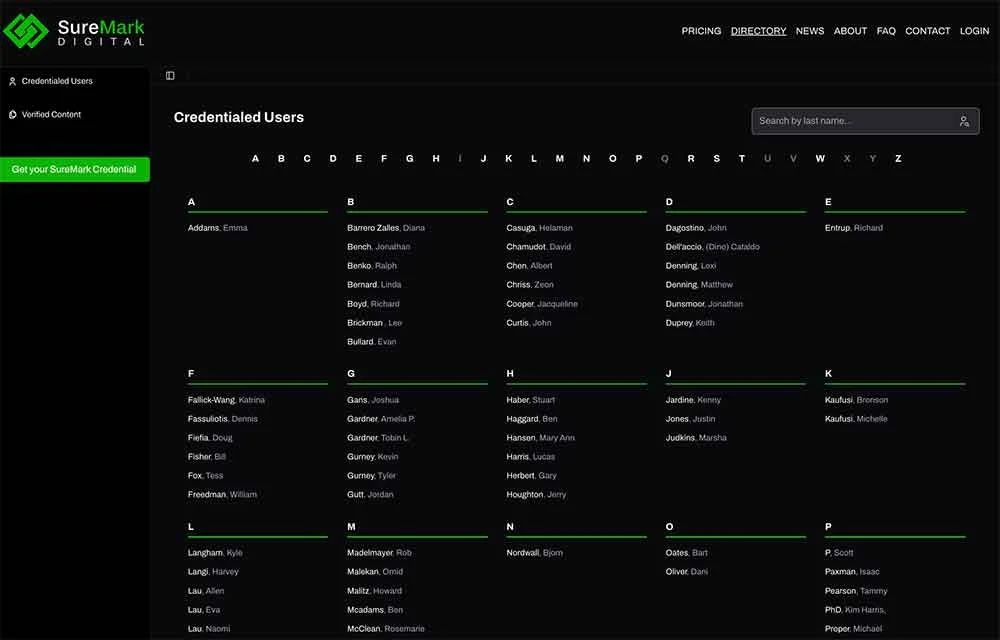Don't Get Rubio'd: The Perils of AI Voice Impersonation and How to Neutralize it
In an age where trust is the most valued currency of connection, nothing destroys it faster than a familiar voice used for deception. Real-time voice cloning, paired with the insidious art of phone number spoofing, has turned telecommunications into a minefield. What was once a simple prank or crude con has evolved into a sophisticated assault on our sense of security—one that preys on urgency, familiarity, and the human instinct to help.
Photo credit: Joseph Sohm / Shutterstock
Consider the chilling case from this past July, 2025, when an unknown fraudster used AI to mimic the voice of U.S. Secretary of State Marco Rubio, reaching out to three foreign ministers, a U.S. governor, and a member of Congress. Posing as Rubio on the Signal app—with voicemails and texts that echoed his cadence and style—the imposter sought access to sensitive information or accounts. The State Department issued an urgent cable on July 3, warning diplomats of the breach, which authorities described as part of a broader wave of AI-driven impersonations targeting high-level officials. Though the attempt failed, it underscored a stark reality: even the powerful aren't immune. As David Axelrod, former Obama advisor, posted on X, this was "only a matter of time."
But such high-profile hits are merely the tip of the iceberg. Everyday victims face a relentless tide of these scams. In March 2025, a Canadian grandmother named Marilyn Crawford nearly wired emergency funds after a call from what sounded exactly like her grandson in distress—crying out that he was arrested and needed bail. Experts suspect AI voice cloning, fueled by snippets from social media, made the deception nearly indistinguishable. Across the border, in July, Florida resident Sharon Brightwell lost thousands when scammers cloned her daughter's voice to simulate a kidnapping, demanding ransom via untraceable gift cards. Globally, deepfake fraud losses topped $897 million by mid-2025, with impersonations like these driving much of the surge.
Workplaces aren't immune either. Imagine a frantic call from your "CEO," voice eerily spot-on, insisting you buy $5,000 in iTunes gift cards to cover an urgent vendor payment—spoofed from your company's main line to bypass suspicion. These "boss scams" have spiked with AI, tricking employees into transfers that drain corporate accounts, often under the guise of confidentiality. Caller ID spoofing remains the key enabler: faking trusted numbers to bypass suspicion. It’s illegal in the U.S. under the Truth in Caller ID Act but still rampant. The FTC reports billions in annual losses from such tactics—with imposter scams alone topping $2.95 billion in 2024 —while the FCC notes scammers cycle numbers hourly to evade blocks.
Impersonation isn't new—think boiler-room cold calls or phishing emails—but two innovations have supercharged its menace.
Real-time AI voice synthesis, which can replicate a timbre from mere seconds of audio harvested from TikTok or voicemails.
Seamless spoofing via VoIP, masking origins to mimic local or official lines.
Together, they forge a perfect storm: calls that feel real, urgent demands that tug at heartstrings or hierarchies, and consequences that ripple from personal ruin to national security threats.
What, then, is to be done amid this fog of falsehood?
At SureMark, we've built a beacon: a verifiable digital credential that cuts through the noise with cryptographic certainty. Whether you're a public figure like Rubio, whose identity we can anchor in our universal registry, or an everyday professional safeguarding your inner circle, the process is elegantly simple. A mutual "challenge-response" handshake—initiated via a free app — confirms identities without relying on the vulnerable voice signal itself. No AI detective work, no deepfake countermeasures that lag behind tech's sprint. Just math: public-key proofs that affirm, "This is me," impervious to mimicry, no matter how refined the clone.
SureMark Directory
Had Rubio carried a SureMark credential—and shared that information with his contacts and followers—the scam would have crumbled at the first challenge. The imposter's flawless facsimile? Irrelevant. Our system doesn't audit the audio; it verifies the secure identity of the person underneath.
The risk isn't abstract. It's your next call, your team's inbox, your family's peace of mind. Don't get Rubio'd. Explore SureMark's tiers today—Personal, Professional, Enterprise—and reclaim the trust that technology once promised. Because in a world of echoes, authenticity isn't a luxury; it's your most important line of defense.
— W. Scott Stornetta
CEO, SureMark Digital


